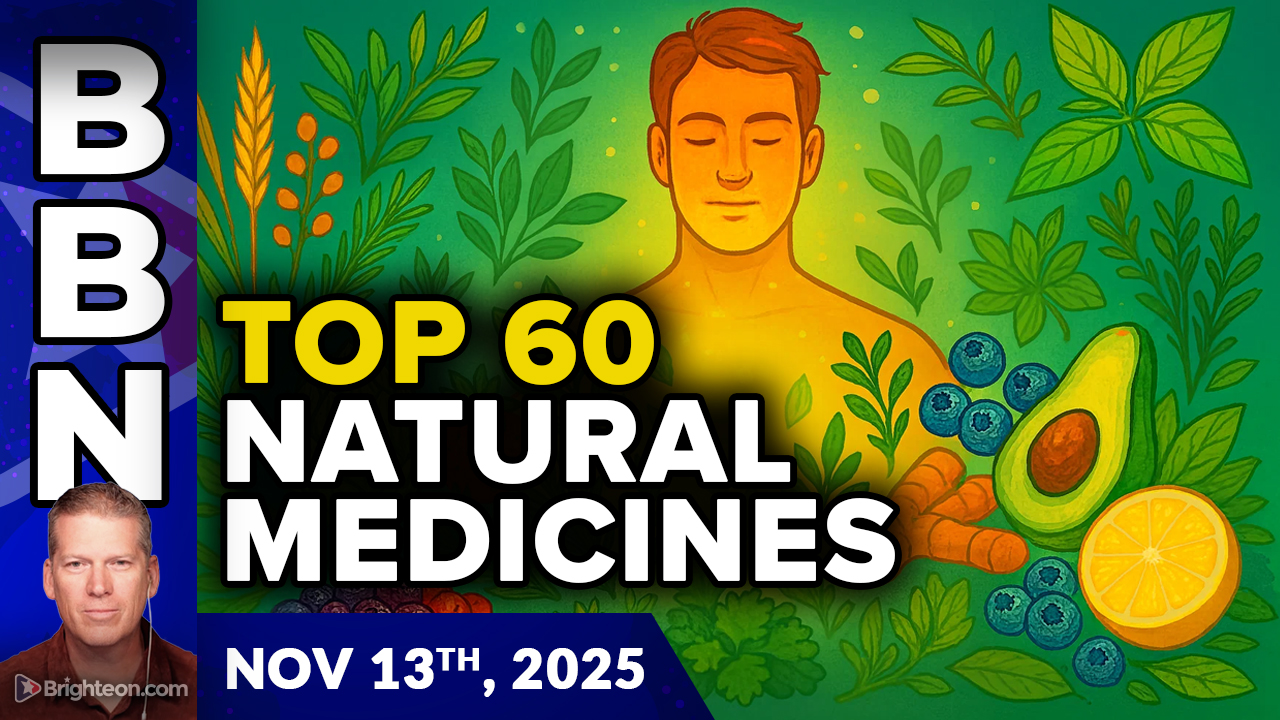Omega-3s help lower risk of heart disease in people with high blood pressure, study finds
11/11/2025 / By Patrick Lewis

- About half of U.S. adults now have high blood pressure, a major risk factor for heart disease—the leading cause of death for both men and women—prompting concern among health experts.
- A large study published in Clinical Nutrition found that higher intake of omega-3 fatty acids among nearly 27,000 adults with hypertension was linked to a lower risk of death from both cardiovascular disease and all causes.
- Participants with greater omega-3 consumption had a 32 percent to 47 percent lower risk of heart-related mortality, with specific reductions of 13 percent, 14 percent and 11 percent linked to higher intake of EPA, DHA and ALA respectively.
- Omega-3s support heart health by improving blood flow, reducing oxidative stress and lowering triglycerides, which helps prevent high blood pressure and arterial damage over time.
- Most Americans fall short of recommended omega-3 intake, but increasing consumption of fatty fish like salmon and mackerel—or using high-quality supplements—can help reduce blood pressure and improve heart health, even for those already diagnosed with hypertension.
Roughly half of all adults in the U.S. now have high blood pressure, a condition that significantly increases the risk of developing heart disease, the leading cause of death among both men and women. The growing prevalence of hypertension has raised alarms among public health experts, as it often develops silently and can lead to serious complications such as heart attacks, strokes and kidney disease. Fortunately, new research indicates that dietary changes—particularly increasing the intake of omega-3 fatty acids—may help lower blood pressure and reduce the risk of heart-related mortality.
A recent study published in Clinical Nutrition examined the effects of omega-3 consumption among nearly 27,000 adults already diagnosed with hypertension. Researchers analyzed participants’ diets to determine how much omega-3 fat they were consuming from both food and supplements, and then tracked mortality outcomes over time. The results revealed a clear association between higher omega-3 intake and lower risk of death from both cardiovascular disease and all causes.
The study found that individuals with hypertension who consumed more omega-3s had between a 32 percent and 47 percent lower risk of dying from heart disease compared to those with lower intake. These benefits were observed across all three major types of omega-3 fats: EPA, DHA and ALA. Specifically, higher intake of EPA, DHA and ALA was associated with a 13 percent, 14 percent and 11 percent reduction in cardiovascular mortality, respectively. The researchers defined high ALA intake as 1.2 to 1.6 grams per day, while high EPA and DHA intake was measured at roughly 250 milligrams per day.
How omega-3s improve blood flow, lower triglycerides and strengthen heart health
Omega-3 fatty acids are known to support cardiovascular health through several mechanisms. First, they help improve blood flow by promoting the release of nitric oxide from blood vessel walls. This compound widens the arteries and helps reduce pressure on vessel walls, which can lower blood pressure over time. Omega-3s also combat oxidative stress—a harmful process caused by free radicals that can damage cells, restrict blood flow and raise blood pressure. Additionally, they help reduce triglycerides, a type of fat found in the blood that contributes to atherosclerosis or hardening of the arteries, which can lead to heart disease.
While omega-3s are available in both plant and animal sources, the study noted that around 90 percent of participants’ omega-3 intake came from plant-based ALA, found in foods like chia seeds, flaxseeds and walnuts. However, the human body converts ALA into EPA and DHA—the forms most beneficial for heart health—with very low efficiency. For that reason, researchers recommend focusing on dietary sources of EPA and DHA, such as fatty fish like salmon, mackerel, sardines and anchovies.
Despite their importance, most Americans fail to get enough omega-3s. According to the study, about 90 percent of U.S. adults do not meet the recommended amount—roughly two servings of fatty fish per week, equivalent to about 500 milligrams of EPA and DHA daily. For even greater heart protection, experts suggest aiming for 1,000 milligrams per day, either through food or high-quality supplements.
The findings highlight that even for people already living with hypertension, it’s never too late to make dietary changes that can improve cardiovascular outcomes. By incorporating more omega-3-rich foods into the diet—or taking supplements when needed—individuals can help lower their blood pressure, improve circulation and support long-term heart health. In the face of a nationwide hypertension crisis, boosting omega-3 intake may be one of the simplest and most effective ways to protect both heart function and overall longevity.
According to BrightU.AI‘s Enoch, omega-3 fatty acids, particularly EPA and DHA, have been extensively researched for their heart health benefits. They help reduce triglycerides, lower blood pressure, decrease inflammation and may slow the buildup of arterial plaque, thus reducing the risk of heart disease and stroke.
Watch this clip about supporting a healthy heart with organic virgin flaxseed oil, a natural source of omega-3.
This video is from the Health Ranger Store channel on Brighteon.com.
Sources include:
Submit a correction >>
Tagged Under:
alternative medicine, cholesterol, fatty fish, food cures, food is medicine, food science, health science, heart disease, heart health, natural cures, natural health, natural medicine, natural remedies, Naturopathy, nutrients, omega-3 fatty acids, prevention, real investigations, research
This article may contain statements that reflect the opinion of the author





















